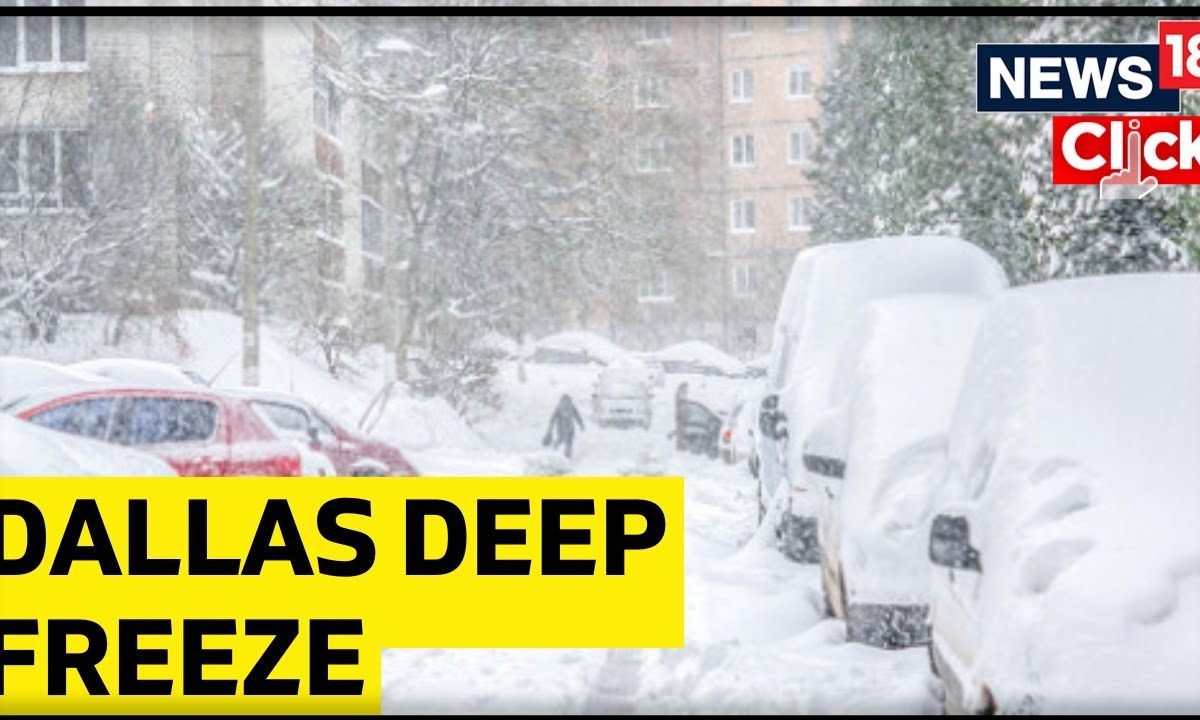Dallas, Texas, is known for its warm climate, but as the seasons change, residents eagerly anticipate the first freeze of the year. Understanding when this phenomenon typically occurs is important not only for individuals but also for farmers, gardeners, and city planners. This article will explore the historical data on freeze dates in Dallas, the implications of freezing temperatures, and tips for preparation.
Understanding Freezing Temperatures

Before diving into the specifics of Dallas’s freeze dates, it’s crucial to define what a freeze actually is. A freeze occurs when the temperature drops to 32°F (0°C) or lower. In meteorological terms, there are different types of freezes:
- Light Freeze: Temperatures drop to 29°F to 32°F (-2°C to 0°C).
- Moderate Freeze: Temperatures drop to 25°F to 28°F (-4°C to -2°C).
- Severe Freeze: Temperatures drop to 24°F or lower (-4°C and below).
In Dallas, the first freeze of the year is often a significant weather event, marking the transition from fall to winter.
Historical Data on Freeze Dates in Dallas

To establish a pattern, let’s take a look at historical data regarding the first freeze in Dallas. According to the National Weather Service and local meteorological records, the first freeze typically occurs in late fall. Here are some statistics:
- The average date for the first freeze in Dallas is around November 30.
- In the past 30 years, the earliest recorded freeze occurred on November 12, while the latest was on December 22.
- Approximately 50% of the years experience the first freeze by December 1.
This data suggests a lack of predictability, with variations that can significantly impact both urban and rural life in the Dallas area.
Factors Influencing Freeze Dates

Several factors can influence the timing of the first freeze in Dallas:
- Geographic Influences: Dallas’s location in North Texas means it is subject to varying weather patterns influenced by the Gulf of Mexico and the Rocky Mountains.
- Climate Change: Recent studies indicate that climate change may be shifting freeze dates later in the year. Warmer winters could delay the onset of freezing temperatures.
- Urban Heat Island Effect: Urban areas, like Dallas, often experience slightly warmer temperatures than their rural counterparts due to human activities and infrastructure, which could delay freezing.
Understanding these factors can help residents better prepare for winter weather.
Implications of Freezing Temperatures

The first freeze can have various implications for the community:
- Agricultural Impact: Farmers must be vigilant about frost warnings to protect sensitive crops. A sudden freeze can destroy budding plants that have not yet hardened.
- Infrastructure Concerns: Freezing temperatures can lead to issues such as frozen pipes, road hazards, and increased energy consumption for heating.
- Health Risks: Elderly residents and those with certain medical conditions may be at risk during sudden temperature drops if they are not adequately prepared.
Preparing for the First Freeze
Preparation is key to minimizing the negative impacts of the first freeze in Dallas. Here are some tips:
- Protecting Plants: Cover sensitive plants with cloths or blankets, and consider using mulch to insulate the roots.
- Insulating Pipes: To prevent frozen pipes, insulate exposed plumbing and let faucets drip during freezing temperatures.
- Winterizing Your Home: Ensure that windows and doors are sealed properly to maintain heat and reduce energy costs.
- Emergency Preparedness: Have a kit ready with supplies such as blankets, food, and water in case of power outages.
By taking these precautions, Dallas residents can better weather the first freeze of the season.
Case Studies: The Impact of Freeze Events in Dallas
To illustrate the importance of preparation and understanding freeze dates, let’s look at some notable case studies:
- February 2021 Freeze: A historic winter storm hit Texas, including Dallas, leading to widespread power outages and water supply issues. Temperatures dropped significantly, and the region was unprepared for the prolonged freeze.
- December 1983 Freeze: An early freeze in December resulted in severe damage to agriculture, particularly in the Dallas-Fort Worth area, costing farmers millions in lost crops.
These case studies underscore the potential risks associated with freezing temperatures and the necessity of being prepared, especially in a region not typically accustomed to extreme winter weather.
In summary, the first freeze in Dallas typically occurs around late November to early December, although variations can occur due to various influencing factors. Understanding the implications of freezing temperatures is crucial for residents to minimize risks and prepare adequately. As climate patterns continue to change, it is essential for the community to stay informed and proactive about winter weather. By taking preventive measures, Dallas residents can ensure they are ready to face the challenges posed by the first freeze of the season.